#Watson Fellowship
Text
𝓜𝓪𝓼𝓽𝓮𝓻 𝓵𝓲𝓼𝓽
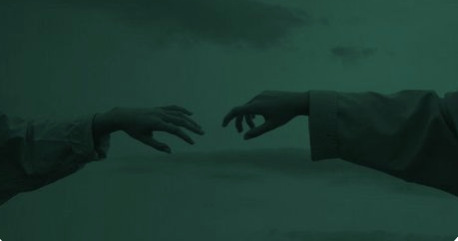
𝒲𝑒𝓁𝒸𝑜𝓂𝑒 𝓉𝑜 𝓂𝓎 𝒷𝓁𝑜𝑔 !
𝐵𝑒𝓁𝑜𝓌 𝓎𝑜𝓊 𝒸𝒶𝓃 𝒻𝒾𝓃𝒹 𝓉𝒽𝑒 𝒸𝒽𝒶𝓇𝒶𝒸𝓉𝑒𝓇𝓈 / 𝒻𝒶𝓃𝒹𝑜𝓂𝓈 𝓉𝒽𝒶𝓉 𝐼 𝓌𝓇𝒾𝓉𝑒 𝒻𝑜𝓇 𝒶𝓈 𝓌𝑒𝓁𝓁 𝒶𝓈 𝓂𝓎 𝒜𝒪𝟥 𝓅𝒶𝑔𝑒 𝒶𝓃𝒹 𝓅𝒶𝓈𝓉 𝒶𝓃𝒹 𝒸𝓊𝓇𝓇𝑒𝓃𝓉 𝒻𝒾𝒸𝓈.
𝑅𝑒𝓆𝓊𝑒𝓈𝓉𝓈 | 𝒜𝒪𝟥

𝓢𝓮𝓻𝓲𝓮𝓼
The Arbitrary Lives of the Occupants of 221 B Baker Street
𝓞𝓷𝓮 𝓢𝓱𝓸𝓽𝓼
Don’t Go Breaking My Heart (Sherlock x Reader)
Filling the Empty Space (Sherlock x Reader)
Something You Taught Me (Sherlock x Reader)
What the hell was that?! (Sherlock x Reader)
Too Good to be True (Sherlock x Reader)
Love Story (Sherlock x Reader)
All of You (Sherlock x Reader)
Stressed Out (Sherlock x Reader)

𝓞𝓷𝓮 𝓢𝓱𝓸𝓽𝓼
The Symphony of You (11 x Reader)
Rocks and Rinthonians (11 x Reader)

𝓞𝓷𝓮 𝓢𝓱𝓸𝓽𝓼
Treasure Deep within the Mountain (Elrond Peredhel x Reader)

𝓞𝓷𝓮 𝓢𝓱𝓸𝓽𝓼
Come Home (Ominis Gaunt x Reader)

𝓞𝓷𝓮 𝓢𝓱𝓸𝓽𝓼
Til We Meet Again (College!Matt x Reader) | Part Two

𝓢𝓮𝓻𝓲𝓮𝓼
A Sinner’s Redemption (Joel Miller x platonic teen!reader)
#bbc sherlock#sherlock x reader#sherlock x you#i am sherlocked#john watson#fanfic#the fellowship of the ring#rings of power#elrond peredhel#elrond x you#halbrand#halbrand x reader#doctor who#10th doctor#11th doctor#companion#sherlock holmes x reader#harry potter#cedric diggory#hermione#harry james potter#harry ron hermione#neville longbottom#golden trio#remus lupin#fred weasley#george weasley#durin#9th doctor#12th doctor
102 notes
·
View notes
Note
Sorry if you’ve already answered this, I’m having trouble finding different posts in your blog.
I know a lot of your asks are more practical-related, but how do you suggest fully encapsulating the horror and tragedy of war in a (fantasy) battle scene? I really need that emotional and gory impact but it also to seem reasonably realistic.
My favourite references are Battle of the Bastards in GoT and scenes from Lord of the Rings.
Thanks!!
Martin and Tolkien are not two authors I’d ever expect to find together when discussing thematic and abstract concepts like the horrors of war in their writing. One of them is extremely deep, and the other is a puddle. Neither of them are particularly “realistic” but only one of them claims that pretense while drawing from real history. If you’re wanting horrors of war, you’re much better off moving away from Martin and taking a gander at the actual War of the Roses.
Let me explain.
Tolkien served as an officer during World War I. By sheer body count, The Great War was one of the most bloody and brutal wars in human history. As a point of reference, over a million soldiers died during the Battle of Somme. Perhaps as importantly, World War I killed the cultural concept of the Summer War. Before World War I, the British upper class viewed war as a game. War was an adventure, something young men did between reaching manhood and getting married. Watson from Sherlock Holmes is an excellent example of the end result for this particular outlook. They figured they’d go off, have some jolly good fun, get a few scars, and be back in a few weeks in time for tea. What they got was a meat grinder. Two of Tolkien’s close friends died during the war. He also lived through the bombings during World War II while working as a professor at Oxford, he experienced the devastating effects that war had on the civilian population first hand, and, likely, saw a few of his students die. Despite his hatred of allegory, the man was working through some shit in The Lord of the Rings.
If you’re interested in learning more about World War I or even about effectively demonstrating the horrors of war, I do recommend reading All Quiet on the Western Front. I read it once in high school (more years ago than I’d like to admit here) and, much like Elie Wiesel, it has stuck with me. It was also such an effective anti-war novel the Nazis banned it and it was one of the first books they publicly burnt, so you know it’s good.
Back to Tolkien.
What they don’t tell you about fantasy is that it’s real life, just with elves and dwarves and magic. The real world forms the foundation of fantasy and it’s the humanity of the emotional experience in war, the good and the bad, with both ends cranked all the way to eleven that really makes Tolkien’s work so impactful. LOTR is operatic by design, but what keeps the narrative from falling into melodrama is the core thematic message underneath the pageantry. One of the major themes is hope, which gets symbolized in light, and hope’s interplay with despair, symbolized in darkness. Not just a rosy view of it either, but the genuine struggle to keep the light burning against all the overwhelming reasons to give up or give in. Tolkien allows his characters to be corrupted and redeemed, their struggle with temptation before ultimately choosing the better path or failing and falling into darkness. He commits to the idea that hope can be restored in the unlikeliest of places.
Boromir’s death is, perhaps, one of the best examples of Tolkien’s philosophy in action. Boromir is a character we’re not sure of, he wants the one ring from the outset, he’s the only one advocating that it shouldn’t be destroyed. The hearts of men are easily corrupted. When he tries to take the ring from Frodo, he falls into his worst instincts and breaks the Fellowship. But then, against the overwhelming flood of Uruk-hai, Boromir tries to save Merry and Pippin. He fights wounded, shot again, and again, until he’s felled by twenty arrows and he fails. Yet, in his failure he restores Aragorn’s hope in his people, gives him a reason to fight for Gondor, and inspires the audience to believe in Man’s potential for greatness.
Tolkien could have left Boromir in the dark, but he didn’t. He could’ve given into cynicism, but he didn’t. In every adaptation, Boromir’s death never fails to get me bawling. Boromir is both good and bad, both dark and light, his best and worst instincts are driven by the same underlying, sympathetic reason—his desire to save his people and fulfill his duty to his father.
On the whole, I find Tolkien’s presentation of the human condition and war to be more compelling and realistic than Martin’s. Tolkien’s underlying themes have more in common with All Quiet on the Western Front, Saving Private Ryan, and HBO’s Band of Brothers. For all that his characters often feel larger than life (by design, he’s telling an epic) there’s always a grounding quality that allows the audience to connect with them. Whether we agree with Tolkien’s core thematic message or not, Tolkien genuinely has something to say about warfare and its effect, both on personal and world changing levels, and he communicates that message very well.
The irony about the “horrors of war” isn’t about the horrors of war. Thematically, the “horrors of war” is about who we choose to become in the face of them when trapped in the crucible. Do we rise to our best selves? Do we fall to our worst? When every illusion about who we believe we are is stripped away, what’s left? It’s an existential question, not a “realistic” one.
You can’t write about the horrors of war in fiction if you have nothing to say about war, humanity, and its effects. All you’ll end up with is gore for shock value. The world becomes hopelessly depressing, and, in the end, all the blood turns brown before it’s finally shat out.
Hi, Martin.
Don’t get me wrong, Martin is a very skilled writer. His prose is genuinely beautiful and his first book in ASOF, A Game of Thrones is actually a pretty decent deconstruction in the traditional fantasy narrative and a fairly realistic treatment of how events would go for the standard well-meaning fantasy protagonist. And that’s… the deepest we get.
Martin comes out of the 24/Joss Whedon death for shock value school of writing and the land of Iron Age comics that doesn’t have anything to really say beyond, “people suck.” Underneath it all is a level of cynicism in the human condition that would make Garth Ennis blush. The deaths are just shock value. There’s nothing more to it than that. Once you’ve acclimated to the gore, there’s nowhere else to go and nothing else to think about. Ironically, out of his contemporaries, Robert Jordan is better at giving both war and death in his narrative lasting effect, driving character growth, and real meaning.
Martin and Tolkien are opposite ends of the spectrum in their approach to war and their outlooks are utterly incompatible. One of them is a complete cynic and the other is facing himself honestly, openly, fearlessly, and without a smidgen of irony. (The true irony here is that the latter is the Englishman.) Following Martin’s blueprint won’t bring you to a Tolkien outcome. Tolkien’s genuine emotion is the subject of mockery in Martin’s world. Season 8 may’ve been clumsy and infuriating, but it was the natural end of Comic Book Iron Age cynicism. There are no good people, people with power can never be trusted, and all heroes, no matter how noble, reveal their true colors as villains in the end. As Christopher Nolan said, “You either die a hero or live long enough to become a villain.” This philosophical outlook may be sold as realistic but it’s really just Political Both Sidesism, Fantasy Edition.
The irony is that the real history Martin draws from, The War of the Roses, is simultaneously crueler, kinder, more noble, more horrific, more impactful, and ultimately more hopeful than Martin’s own work. And this was post the Hundred Years War and all the wars that preceded it.
I bring you, the Duality of Man.
If you want to write a realistic battle scene, start with real war. If you want to write about the horrors of war, start with real war. Pick a war, any war, and dig in. Reading the experiences of others is a way to gain insight into experiences you yourself don’t share and start to process the different philosophies born out of those experiences. The horror of war is a human one.
The most important lesson is that you won’t get there by focusing on the battle itself. To truly feel the impact, every character needs to be carefully built from the very beginning with a through line to every horrific event that happens to them. If you want to learn how to do that, then you need to go study every single war movie from good to bad (including the jingoistic rah-rah ones) like Apocalypse Now, Saving Private Ryan, Battle for Iwo Jima, etc, to really start internalizing the underlying storytelling structure and character design formula that makes those films tick. There’s no one better at portraying the horror and humanity of war than the war film industry. Part of what makes the best of these films really good is their willingness to allow their characters to be emotional and vulnerable. Which you won’t find in a lot of fantasy novels that run on machismo, but is the secret sauce that gives Tolkien his impact.
Having the confidence to allow your characters to struggle, be vulnerable, experience humiliating circumstances, and appear weak is an aspect of writing that a lot of men and women struggle with. Cynicism is a form of self-protection to keep those emotions away, to keep one from being emotionally invested, and is a means by which we protect ourselves from being hurt. We may portray cynicism as the more realistic reality but it’s just a cloak we hide behind. Martin’s approach to warfare is less realistic than Tolkien’s. Tolkien’s characters approach warfare with an eye toward protecting their civilians, safeguarding their future, or, in the case of his villains, focus on genocide. War for Tolkien is the eradication of civilization and the destruction of the future. Characters from experienced combatants to innocent civilians are willing to risk their lives for a world and for the people who matter to them. Martin has the Summer War. It’s there in the title, A Game of Thrones. An entertaining charade of musical chairs. And while all of his characters are chasing power, almost none of them have any sort of vision or goal for the future beyond the accumulation of more. In Martin’s world, the only way to truly win is not to play, but in the real world playing is the only way to create the world you want. Cynicism ends with no seats at the table and no means to change or save anything.
It’s funny because England during the War of the Roses had been in a state of near constant warfare for hundreds of years with their own domestic powers and France prior to the War of the Roses kicking off. The concept of a Summer War didn’t really exist for the medieval nobility. Much as we joke today about war being a game for medieval nobles due to their ransom protections, it really wasn’t. The peasantry was also much, much more dangerous en masse than they are in ASOF. They drove traveling monarchs to hide in monasteries plenty of times and, while that’s funny, it’s not actually a joke.
Now, picture Joffrey dragged off his horse in the middle of a riot and having his skull crushed by a local fishwife right before being trampled into a bloody, unrecognizable pulp by sharp hooves.
Or enjoying the Agincourt bathing route.
You’re welcome.
-Michi
This blog is supported through Patreon. Patrons get early access to new posts, and direct access to us through Discord. If you’d like to support us, please consider becoming a Patron.
1K notes
·
View notes
Text
I first watched Goncharov (1973) in a college film class (an insufferable statement, I know, I’m sorry), which was an interesting experience on several levels because:
1) I’m not actually sure how the professor got a copy at the time? Like, I am 99% certain it was a bootleg they’d picked up during a summer research trip to Europe and the rest of the department/the librarians/whoever was actually in charge of the AV center all just had an unspoken agreement to never mention it, because there was no way our small liberal arts college was going to get legit rights to it, even for educational purposes. The legal backstory of the movie would probably have made for a fascinating interdisciplinary special topics course all by itself.
2) I happened to be in a class with a strangely significant number of people with Italian and Russian heritage, of the recent enough sort that they visited family in those countries regularly and had at least casual listening skills in the languages, if not fluency. And this made for a fascinating class discussion, far better than I think the professor had ever anticipated, because it turned out that each subset of students in the class (northeastern American vs. Italian vs. Russian) was picking up on different sets of themes and symbolism. We had one senior in the class who was applying for a Watson fellowship to study Russian iconography after graduation and the stuff she brought in about the Orthodox images just shown casually in the background added a whole dimension our prof had never heard anyone talk about before. I’m pretty sure they ended up co-authoring a paper about it.
Anyway, not that anyone needed my rambling about this, but the sudden Goncharov renaissance here has been very nostalgic for me.
572 notes
·
View notes
Text
9 People You Would Like to Know Better
Tagged by @burana006 and @tastethesetears thank you so much!!
(1) Three ships: newmann, ineffable husbands and thasmine
(2) First ever ship: johnlock
(3) Last Song: venus flytrap - MARINA
(4) Last Film: rewatched the fellowship of the ring with friends last weekend, it was a ton of fun!
(5) Currently reading: re-reading the song of Achilles for my bookclub
(6) Currently Watching: i am following the new seasons of our flag means death and the great british bakeoff as they come out. I am also watching dimension 20's a crown of candy for the first time.
(7) Currently consuming: i am in a café drinking hibiscus and raspberry kombucha and eating a blueberry muffin
(8) Currently craving: not much, i am pretty contented at the moment 😊
Tagging: @jtownraindancer @aarontheory @trademarkhubris @moth-rolls-some-dice @daisytrails @trashlord-watson @princessegrenouille @shinybrandon and anyone who would like to do it!
66 notes
·
View notes
Text
New York State Society of the Cincinnati, on the death of Alexander Hamilton
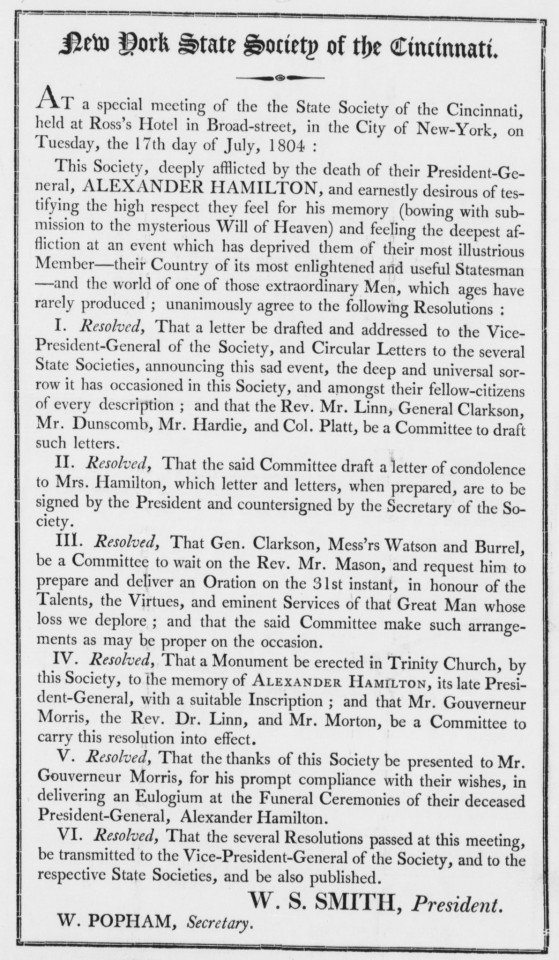
At a special meeting of the the State Society of the Cincinnati, held at Ross's Hotel in Broad-street, in the City of New-York, on Tuesday, the 17th day of July, 1804:
This Society, deeply afflicted by the death of their President-General, ALEXANDER HAMILTON, and earnestly desirous of testifying the high respect they feel for his memory (bowing with submission to the mysterious Will of Heaven) and feeling the deepest affliction at an event which has deprived them of their most illustrious Member—their Country of its most enlightened and useful Statesman—and the world of one of those extraordinary Men, which ages have rarely produced; unanimously agree to the following Resolutions:
I. Resolved, That a letter be drafted and addressed to the Vice-President-General of the Society, and Circular Letters to the several State Societies, announcing this sad event, the deep and universal sorrow it has occasioned in this Society, and amongst their fellow-citizens of every description; and that the Rev. Mr. Linn, General Clarkson, Mr. Dunscomb, Mr. Hardie, and Col. Platt, be a Committee to draft such letters.
II. Resolved, That the said Committee draft a letter of condolence to Mrs. Hamilton, which letter and letters, when prepared, are to be signed by the President and countersigned by the Secretary of the Society.
III. Resolved, That Gen. Clarkson, Mess'rs Watson and Burrel, be a Committee to wait on the Rev. Mr. Mason, and request him to prepare and deliver an Oration on the 31st instant, in honour of the Talents, the Virtues, and eminent Services of that Great Man whose loss we deplore; and that the said Committee make such arrangements as may be proper on the occasion.
IV. Resolved, That a Monument be erected in Trinity Church, by this Society, to the memory of Alexander Hamilton, its late President-General, with a suitable Inscription; and that Mr. Gouverneur Morris, the Rev. Dr. Linn, and Mr. Morton, be a Committee to carry this resolution into effect.
V. Resolved, That the thanks of this Society be presented to Mr. Gouverneur Morris, for his prompt compliance with their wishes, in delivering an Eulogium at the Funeral Ceremonies of their deceased President-General, Alexander Hamilton.
VI. Resolved, That the several Resolutions passed at this meeting, be transmitted to the Vice-President-General of the Society, and to the respective State Societies, and be also published.
W. S. SMITH, President.
W. POPHAM, Secretary.
Source — Library of Congress, Digital Collections, manuscript/mixed material. Image 8 of Alexander Hamilton Papers: Family Papers, 1737-1917; 1804-1805
The New York State Society of Cincinnati - also known as The Society of the Cincinnati - is a fraternal hereditary society founded on June 9, 1783, to commemorate the American Revolutionary War that saw the creation of the United States. In order to perpetuate their fellowship, the founders made membership hereditary. [x] The Society has had three goals; “To preserve the rights so dearly won; to promote the continuing union of the states; and to assist members in need, their widows, and their orphans.” To achieve these aims, the Society called on its members to contribute a month's pay. George Washington was the first president general of the Society. The army's chief of artillery, Henry Knox, was the chief author of the Institution.
The organization was named after, Lucius Quinctius Cincinnatus, a farmer who left his farm to serve as a Roman Consul and Magister Populi (With temporary powers similar to that of a modern-era dictator). In response to a military emergency, he took over the city of Rome as a legitimate dictator. After the conflict, he gave the Senate back the initiative and resumed cultivating his fields. This philosophy of unselfish service is reflected in the Society's motto; He gave up everything to keep the Republic alive, or Omnia reliquit servare rempublicam.
The Society of the Cincinnati was founded by officers at the Continental Army encampment at Newburgh, like Major General Henry Knox. The first meeting of the Society was held in the May of 1783 at a dinner at the Verplanck House Fishkill, New York, (Which was Baron Von Steuben's headquarters during the Revolution) before the British evacuation from New York City. The meeting was presided over by Major General Friedrich Wilhelm von Steuben, with Lieutenant Colonel Alexander Hamilton serving as the orator. The participants agreed to stay in contact with each other after the war. Mount Gulian is considered the birthplace of the Society of the Cincinnati, where the Institution was formally adopted on May 13, 1783. To this day the members of the organization meet annually at the Verplanck homestead. It is modernly known as The Mount Gulian historic site and looks very much as it did in 1783. There you will find the Cincinnati Gallery, dedicated to the New York State Society, with displays, artifacts, and documents illustrating the founding and activities of the Society during its continuous existence since 1783. Read more here.
While the NYSSOTC did erect the famous white monument on top of the grave of Hamilton, [x] in 1957 they erected another monument in Financial District in Manhattan in New York County engraved with; “To the Memory of Alexander Hamilton 1757 - 1804. Lieutenant Colonel, Aide de Camp to Gen. Washington And Those Other Officers of the Continental Army & Navy Original Members of the Society Whose Remains are Interred in the Churchyards of Trinity Parish” [x]
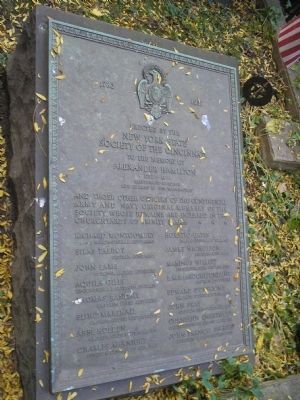
#amrev#american history#alexander hamilton#historical alexander hamilton#new york state society of the cincinnati#baron von steuben#henry knox#george washington#history#cicero's history lessons#friedrich wilhelm von steuben
60 notes
·
View notes
Text
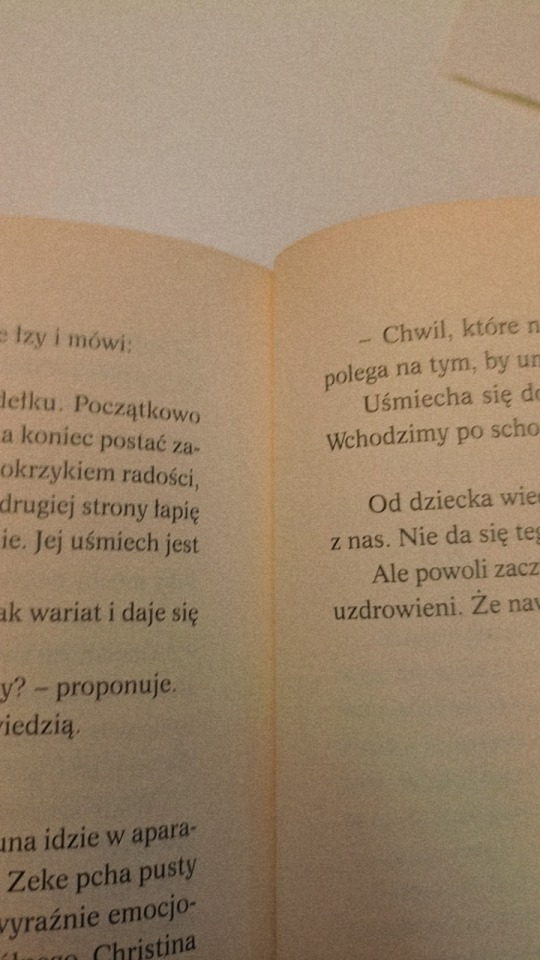
Hi everybody!
I'm still reading "The Lord of the Rings. The Fellowship of the Ring." It's not as interesting as I though it will be, but I want to finish it.
Last friday I started watching ,,Sherlock". My friend @gothicstoriesenthusiast recommend this to me and I'm so gratefull for that. I love that series, especially John Watson (and Johnlock).
Ps: Today in library I reread "Allegiant" by Veronica Roth. It's one of my favorite books, although it ends very sad.
See you next Wednesday!
#books#lord of the rings#reading#spotify#booklover#allegiant#divergent#bbc sherlock#john watson#johnlock
8 notes
·
View notes
Text
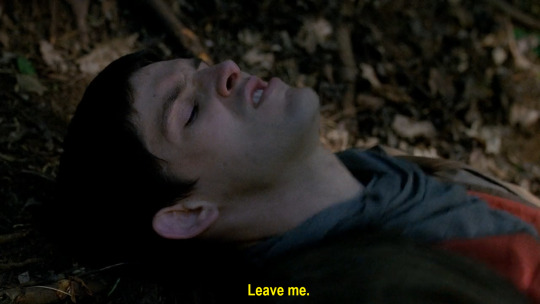
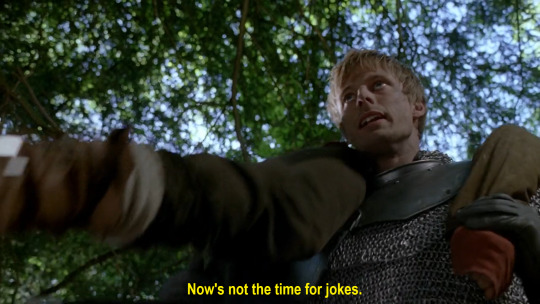



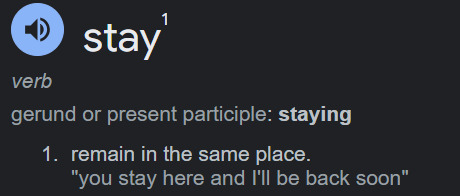

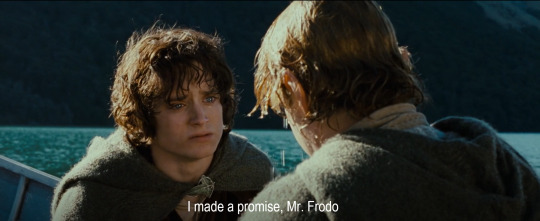
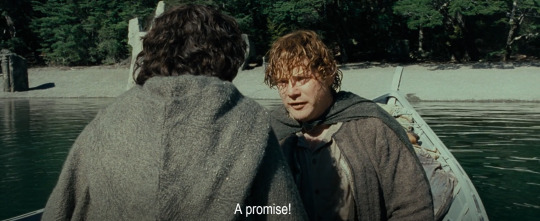
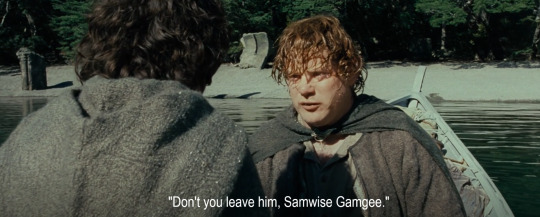
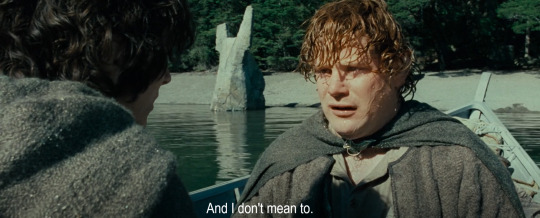



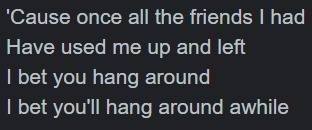
1. Merlin S4E6, A Servant of Two Masters//2. Trista Mateer//3. The Book Thief - Markus Zusak//4. Dark Sonnet - Neil Gaiman//5. Oxford Languages definition of "stay"//6. I Must Belong Somewhere - Bright Eyes//7. Lord of the Rings: Fellowship of the Ring (Jackson, 2001)//8. Rumi//9. The Howling - Dog Ears//10. Sit Down Beside Me - Patrick Watson//11. Barbary Coast (Later) - Conor Oberst
11 notes
·
View notes
Text
sitting here thinking about all the character pairs that are closer to being binary star systems than they are simply friends or lovers or partners. holmes & watson, aziraphale & crowley, kirk & spock & mccoy, reese & finch, constantine & chas, hannibal & will. characters who fall together as sure as gravity, for better or for worse.
characters who are missing something in themselves, something necessary for their survival, except for when the other is around. characters whose flaws are black holes that threaten, inexorably, to swallow their words and deeds and intentions until the other comes along whose virtues are nova, who pulls them with a new inevitable orbit toward an existence that is teeming with light.
(characters who are an abyss, whose instincts lead to ruination and whose cravings for fellowship damn all who approach in their turn, yet the other plunges in willingly. characters that try to lure the other into taking their place in a hell of their own making and, upon clasping hands, find that their machinations have shaped labyrinths enough to fit two.)
#me weeping as acd turns in his grave: it's about the Desire To Be Known#it's the Rotten Work Not To Me Not if it's You#it's the There is No Me Without You#it's the If I Wrote You Out of A Single Line My Story Would be in Tatters#it's the Triumvirate. the Inevitable Friendship. the Pair. the Intertwined. The Lovers.#writing#motifs#sherlock holmes#star trek#good omens#idk what to tag this/what not to tag it i'm very emotional about group dynamics#oxly hollers
10 notes
·
View notes
Note
Hey! Before I jumped into any requests for a personal match up, I wanted to let you know how amazing your writing is. I love the variety in it and how you stay consistent all the time. A real awesome blog to come across !!
Anyways. Some things about me for a match up—preferably within The Hobbit universe, as well as LOTR, or Sherlock! Take your time with this too. No pressure
• I go by he/they pronouns, am 5'9, and am a trans guy. Autistic as well
• Pretty plain with brown eyes and brown hair
• Very ambiverted! Extreamly awkward and stiff with new social situations, but very loud around people I'm comfy with
• Special interest includes Doctor Who and Total Drama. A big nerd, so to speak, with a huge love for cartoons. Comedy as well. I love stand-up routines and slap stick humor. Anything involving a joke, really. Part of the reason I'm always looking to lighten the room with one. It's a big quality of mine
• Music is a way of life. I never stop listening to it no matter what. When I'm doodling, writing (especially writing), reading, sitting in a car, etc. I'm always listening to something or other
That's about it. Hope it was enough, and remember to pace yourself in whatever you're doing right now. Have a great day :D
Thank you so much for your kind words! They truly made my day! <3 I am so happy you enjoy my fics and whatnot! And thank you for requesting a matchup, I hope you enjoy this as well! :)
---
The Hobbit;
Fili Durin:

👑 You met Fili when you joined the Company, bring another magic user, you were brought along with Gandalf and instantly there was a connection between you and the eldest Durin Prince; actually you were good friends with both Fili and Kili, and though you and Kili would joke around and could talk for hours, you were head over heels for Fili
👑 Fili and Kili were huge on making sure you were alright after a fight with orcs or goblins, but Fili would be the one to help you when you got hurt, scratches, bruises, etc; and you, though you were shy in the beginning, you never faltered when cleaning any of Fili's wounds
👑 You even saved Fili from dying after he got stabbed, but you were unable to save Kili; Fili, you, and most of the Company who survived mourned Kili, and you helped Fili in any way you could
👑 Fili later asked you to stay with him at the Lonely Mountain, and of course you agreed to stay, Fili would need all the help he could get after abruptly becoming King under the Mountain
👑 And you stayed with him, making sure he was taking breaks and taking care of himself, as the years went by, you got got closer; in the end, you had yourself a braid in your hair
---
Lord Of The Rings;
Merry Brandybuck:

🥬 You met Merry when he and Pippin rushed in to join the Fellowship, and you thought he was quite adorable; and it wasn't long until you got used to the group and almost endless walking, and became friends with Merry and Pippin
🥬 You were closer to Merry though, finding that you had more in common with him; From loving to make people laugh, enjoying music and song, and making sure others were alright; you both were a perfect pair
🥬 With the help from Boromir, you helped teach Pippin and Merry how to swing a sword, and it was a lot of fun; that was one of the events that brought you and Merry closer together
🥬 When the battle of the five armies began, you stayed by Merry's side, the both of you making sure the other was alright; but, an orc had somehow managed to strike you, and fearing you'd die, you confessed your love to Merry, but really, you were fine and just had a large bruise on your side, you woke up the next day
🥬 Merry was there by your bedside, asking you a flurry of questions on whether you needed anything or if you were in any pain, (he even confessed that he felt the same); it was sweet and you couldn't wait to get better and life your life with Merry, peacefully and happily
---
Sherlock:
John Watson:

🔍 You met John Watson when you came to Sherlock for help, you sibling had gone missing and you needed a true genius to help you find them; of course, Sherlock won't run away from a good mystery, and John happily followed along
🔍 During the search for your lost sib, you got closer to the Dr., learning a bit more about each other as the days and nights passed by slowly; even though it was your sibling that was missing, you tried to make John and Sherlock laugh, though Sherlock found it odd, John found it sweet
🔍 You did find your sibling a couple of days later, they had just left to start a new life with the love of their life, and upon hearing this made you realize that you were in love with John; this then led to you asking John out in the middle of a rain storm
🔍 Totally worth it though, that night John brought you into the flat, got you new clothes and a towel to dry off, and then the two of you sat and binged Doctor Who; though it was a bit awkward, you both scooted closer and closer to one another and the rest is history
🔍 John is super protective of you, even though you can totally take care of yourself, John will always be there for you, even if it's just to go out and buy milk and eggs; you are so glad and thankful to have John in your life, he is your sun, moon, and stars
---
#matchup#matchups#match up#match ups#cute#fluff#slight angst#x reader#request#requests open#requested#the hobbit#hobbit#the lord of the rings#lord of the rings#lotr#sherlock#bbc sherlock#sherlock bbc#fili#fili durin#fili x reader#merry brandybuck#merry brandybuck x reader#merry lotr#john watson#john watson x reader
7 notes
·
View notes
Note
Sherlock Holmes (ofc!) aaand elrond for the ask game please!
SURE! And thank you for having asked!
On Holmes first, then!
First impression -> I started with the italian translation of the hound fo the Baskervilles so, sorry Holmes, a total bitch but SOOO gay for Watson
Impression now -> Chemist blorbo. Best boy. I will defend him with my life. Still totally gay for Watson. Kidding aside, Holmes is an incredibly complex character that i truly love now that i know him better
Favorite moment -> When he tells Gibson he SHOULD HAVE KEPTIT IN HIS PANTS around miss Dumbar. And generally when he's a snarky bitchy man to rich asshole clients
Idea for a story -> One that i'm plotting and trying to write, i'll manage at some point, Holmes having a case from a former professor he used to hate. I feel like there's so much potential here
Unpopular opinion -> dunno if it's unpopular, but i believe that when he and Watson retire, Holmes is alone for few months to organize the cottage and so on while Watson is setting their affairs in London. Holmes writes the lion's mane here in a letter to Watson (maybe to make him a bit jealous and make him hurry?)
Favorite relationship -> With Watson. The way they evolve, the way they're made for each other. I believe they retire together in 1904 and STAY together. That Watson is not sent to France and they spend the war in London with Holmes helping mycroft and the secret services and Watson serving in military hospitals home
Favorite headcanon -> he has a sweet tooth. Put him in front of sweets when he's in the mood and he'll absolutely polish them off. Also from the stories i believe that Watson is bullshitting us totally when he says that holmes doesn't exercise. Man boxes and exercises. Together with Watson, in my headcanons they often spar together!
Damn, i tend to rant a lot, i'm sorry.
Now to Elrond!
First impression -> Hugo Weaving Elrond. On a 16-something years old girl who thinks she's het. Well, you can imagine. i fell for him. HARD.
Impression now -> He's my favourite LOTR character together with Theoden, what are we talking about, lol. He's a person who suffered incredibly and still chose kindness. I admire him deeply, he could have sailed with celebrian, or after elros' death. he didn't. he stayed and kept fighting on. I admire that Half-Elf crazily.
Favorite moment -> In the books, when he goes 'I i remember the old times' when he says that he saw the hosts of the last alliance and all the princes united and how they yet were not as many or as splendid as they were when Thangorodrim was destroyed. That's Top Elrond Time. From the movies the moment when he's talking to Theoden waiting for Aragorn to show up is super funny and then the epic scene when he hands Aragorn Anduril. Another incredibly good moment is from the book when he doesn't want to let pippin go with the fellowship. That's so good.
Idea for a story -> Elrond goes to Valinor and on the shore meets ALL OF HIS FAMILY. The finweans. The doriathrim. The human side is missing but HEY. The Vanya part of the fam too! Man can be king of everyone! Let me see them having a dinner together!
Unpopular opinion -> okay, man could've let SOMEONE OF HIS HOUSE still accompany the fellowship. just to be sure. maybe not Glorfindel, some other first age warrior, maybe one of his feanorion followers who would've slit the balrog's throat with their teeth (and put the fear of Feanor into Thauron once more)
Favorite relationship -> a though one. Torn between his relationship with Elros (distilled angst), with Celebrian (slurp, also a bit of romance) or with MAGLOR.
Favorite headcanon -> KIDNAP FAM. And Maglor now is in Imladris. And Erestor is a feanorion follower (Maybe he's Erestor Morifinwion). Elrond collects kinslayers, toh
And i ranted a lot for him too! Hope you like the answers!
4 notes
·
View notes
Text
Tag Game: Fandom Edition
Current Hyperfixation: Black Sails
Previous Hyperfixation: Babylon 5, Kuroko no Basuke
Top 5 Ships of All Time: Harper/Trance, Bond/Q, Rimmer/Lister, Harper/Tyr, Holmes/Watson
Top 5 Ships at the Moment: Vane/Jack, Chandler/Joey, Q/Bond, G'kar/Londo, Lyta/Zack
Top 5 Fandoms of All Time: Babylon 5, Lord of the Rings, Andromeda, Red Dwarf, Lost
Favorite Female Character of All Time: Drusilla.
(No other fav characters/male character question?! I'm adding one.)
Top 5 Characters: Boromir, Harper, Q, G'kar, Daniel Faraday
Favorite Minor Character of All Time: Hohne
A Rarepair that you love: Vane/Jack
An OT3+ that you love: Vane/Jack/Anne
Favorite Movie: Lord of the Rings: Fellowship
Favorite TV Series: Babylon 5
Favorite Book: Infinity Welcomes Careful Drivers
First Site you Ever Read Fanfiction on: Fanfiction.net
Where You Find Most of your Fanfiction Today: A03
Favorite Social Media Site for Fandom: LiveJournal (the communities back in the day!). Tumblr now
Tagging @kronette, @sarkywoman, @blithesea (if you want to!)
3 notes
·
View notes
Text
Requests Open
Heyo! I’ve decided to open up requests. But before you send them to me, I feel like I should set some ground rules. I won’t write smut. I will write fluff, angst, AUs, and anything else you can think of.
Character List (UPDATED):
The Wizarding World
- Sebastian Sallow
- Ominis Gaunt
MCU: Daredevil
- Matt Murdock
BBC Sherlock Holmes Characters
- Sherlock Holmes
- John Watson
BBC Doctor Who Characters
- 9 - 13th Doctor
The Rings of Power/ The Hobbit / The Lord of the Rings
- Halbrand/Sauron
- Elrond Peredhel
- The Fellowship characters
- Bilbo Baggins
The Olympians
- Percy Jackson (Platonic/sibling relationship)
- Luke Castellan
ATLA
- Aang (Platonic)
- Sokka (Platonic)
- Katara (Platonic)
- Zuko (Platonic)
Grishaverse
- Kaz Brekker
TLOU
- Ellie (Platonic/Sibling)
- Joel Miller (Platonic)
Fallout
- The Ghoul (platonic/father figure)
Stranger Things
- Steve Harrington
- Eddie Munson
- Robin Buckley
___________
#sherlock holmes#sherlock x you#reader insert#fanfic#sherlock fandom#fanfic writer#x reader#request#reqs open#fluff#bbc sherlock x you#bbc sherlock imagine#ominis x mc#ominis gaunt#sebastian sallow#hogwarts legacy#the rings of power#the hobbit#grishaverse#Kaz Brekker#Ellie TLOU#fallout#the ghoul#percy jackon and the olympians#atla#cooper howard#the doctor#luke castellan
12 notes
·
View notes
Text
𝑷𝒓𝒊𝒔𝒐𝒏𝒆𝒓 𝒐𝒇 𝑨𝒛𝒌𝒂𝒃𝒂𝒏 𝒑𝒍𝒂𝒚𝒍𝒊𝒔𝒕
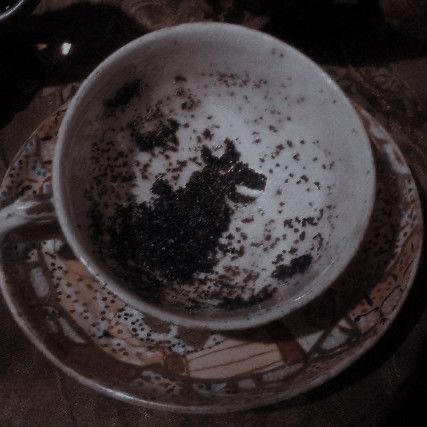
1980s Horror Film - Wallows
Alone in the Woods - Michal Novinski
Always Forever - Cults
Apocalypse - Cigarettes After Sex
Apparition on the Train - John Williams
As The World Falls Down - David Bowie
Aunt Marge's Waltz - John Williams
Autumn Town Leaves - Iron & Wine
Aventine - Agnes Obel
Ballad Of Mr Jones - Jake Bugg
Big Black Car - Gregory Alan Isakov
Black Dog - Led Zeppelin
The Boat of the Fragile Mind - Belle Mare
A Brief History of Time - Jóhann Jóhannsson
Buckbeak's Flight - John Williams
Captain Goddamn - Michal Novinski
Captain Goddamn's Story - Michal Novinski
Cemetry Gates - The Smiths
The Chain - Fleetwood Mac
Chord Left - Agnes Obel
The Curse - Agnes Obel
Cursed - Lord Huron
Damn Right - Mickey Driskill
Dance With The Fish - Bruni Coulais
Dandelion Wine - Gregory Alan Isakov
Dead Man's Hand - Lord Huron
Dirty Paws - Of Monsters and Men
Eleanor Rigby - Cody Fry
Endless Story About Sun and Moon - Kai Engel
Entering - Michal Novinski
Fallingforyou - The 1975
Fellowship - Thomas Newman
Finale - John Williams
Flaws - Bastille
Flood - Michal Novinski
Fortune Teller - Mickey Driskill
Forward to Time Past - John Williams
The French Library - Franz Gordon
Full Moon - The Kinks
Gold Dust Woman - Fleetwood Mac
Good Looking - Suki Waterhouse
Hagrid the Professor - John Williams
Harvest Moon - Lord Huron
Head Credits - Bruno Coulais
Holocene - Bon Iver
Home - Dotan
I'm a WolfWalker - Bruno Coulais
Infinite Love - Emile Mosseri
In The Woods Somewhere - Hozier
It Will Come Back - Hozier
I Wanna Be Yours - Arctic Monkeys
journey in the rain to cry in peace - joiboi
K. - Cigarettes After Sex
The Key In The Sea - Bruno Coulais
Kids - OneRepublic
Kuky Phones Home - Michael Novinski
Kuky's Adventures - Michael Novinski
Landscape With a Fairy - aspidistrafly
Lanterns Lit - Son Lux
Lily Of The Valley - Queen
Little Lion Man - Mumford & Sons
Living Room - Grouper
Lonesome Hunter - Timber Timbre
Love Like Ghosts - Lord Huron
Love Waltz - Marcuzio Pianist
Lumos! (Hedwig's Theme) - John Williams
Me And The Devil - Soap&Skin
The Meetings of the Waters - Fionn Regan
Meet Me In The City - Lord Huron
Meet Me in the Morning - Bob Dylan
Meet Me in the Woods - Lord Huron
Mélancolie - Patric Watson, Safia Nolin
Melody Noir - Patric Watson
Mischief Managaged! - John Williams
Moment's Silence - Hozier
Monster Books and Boggarts - John Williams
My Tunnels Are Long And Dark These Days - Asaf Avidan
Nevermore - Queen
Not Dead Yet - Lord Huron
Nothing's Here - Michael Novinski
Once Upon a Dream - Lana Del Rey
The Patronus Light - John Wiliams
Phantoms and Friends - Old Man Canyon
The Pink Room - Timber Timbre
Please, Please, Please Let Me Get What I Want - The Dream Academy
Please, Please, Please Let Me Get What I Want - The Smiths
Poison Tree - Grouper
Poppy Field - Michael Novinski
The Portrait Gallery - John Williams
Proof - Michael Novinski
Punisher - Phoebe Bridgers
Renegades - X Ambassadors
Rhiannon - Fleetwood Mac
Ribs - Lorde
Riding Into Town - Gun Thunder
rises the moon - Liana Flores
Rosyln - Bon Iver, St. Vincent
Run - Bruno Coulais
Run - Hozier
Run Cried the Crawling - Agnes Obel
Sadness - Bruno Coulais
Saving Buckbeak - John Williams
The Seals - Bruno Coulais
Secrets of the Castle - John Williams
Sedated - Hozier
September Song - Agnes Obel
Setting Sun - Lord Huron
Shortline - RY X
Sit Down Beside Me - Patric Watson
Something French - Devendra Banhart
Something Is Wrong - Bruno Coulais
Some Things Cosmic - Angel Olsen
Somewhere Tonight - Beach House
Squirrel Rescue - Mike Higham
The Storm - Bruno Coulais
Swinging Party - The Replacements
Team - Lorde
Thief - Imagine Dragons
Time Passing II - Mark Isham
Time's Blur - Lord Huron
To Be Alone - Hozier
Trees and Flowers - Strawberry Switchblade
The Trial - Michael Novinski
Under Giant Trees - Agnes Obel
Wait - M83
Way Down We Go - KALEO
We Don't Talk About It - Michael Novinski
The Werewolf Scene - John Williams
West Coast - Imagine Dragons
When the Night is Over - Lord Huron
Whisper of a Thrill - The City of Prague Philharmonic Orchestra
White Teeth Teens - Lorde
Who Are You - Bruno Coulais
The Whomping Willow - John Williams
Who We Are - Imagine Dragons
A Window to the Past - John Williams
Wiser - Old Man Canyon
Words Are Dead - Agnes Obel
A World Alone - Lorde
The World Ender - Lord Huron
The Yawning Grave - Lord Huron
you are welcome to let go - joiboi
#prisoner of azkaban#poa#harry potter#harry potter and the prisoner of azkaban#playlist#harry potter playlist#comfort playlist#aesthetic#dark aesthetic#gloomy
9 notes
·
View notes
Text
The Best Picture Oscar My Way (2000-2022)
After doing this list, I suddenly got inspired to do this sort of thing for some of the other Academy Award categories. For this project I got the following things to say:
Many of the win/nomination changes will be based more on some infamous or otherwise perceived snubs (i.e. Martin Scorsese needing to wait until The Departed for a Best Director win). In general, the changes are based on what the frequent consensus seems to be from what I’ve seen.
I may STILL keep a few of those same snubs if it simply lines up more with the film’s initial reactions at the time (i.e. Clockwork Orange).
There are some changes that the Oscars applied to certain categories over the years (i.e. Sound Mixing & Sound Editing becoming just Best Sound). For this list’s sake, I’ll apply some of my OWN cases of said changes applying (such as the Best Picture expansion from 5 to 10 occurring earlier since, in hindsight, they probably should’ve done that sooner). In case of that change, I’ll just apply it earlier (starting in 1997).
Said expansion has resulted in no less than 8 nominations in Best Picture at a time, so that’ll be my minimum (until 2021, where it was officially made the set amount no questions asked).
Gonna try to keep EGOTs as best as I can. Luckily for this category, there’s currently only one that’ll matter.
More inclusive wins (POC; LGBT) will be more likely to stay. There may be some exceptions after I’ve already made my own inclusive alternatives.
For the early years where Best Picture went to the studio instead (for some godforsaken reason), I’ll just pretend that’s not the case.
Due to some weird, borderline convoluted rules with Best International Feature Film (Mainly that this category doesn’t require US theater plays, but most other ones do), I’ll often go off of an eligible film’s year of original release unless they managed nominations the following year (City of God; Spirited Away)
For Best Picture, I’m only gonna list the nominated producer for newly added films (here’s the Wikipedia page for the rest). I will mostly go with the ones credited as “produced by” or “p.g.a.” (if the latter is shown) on IMDB as the nominees. Limit is five.
Italicized film titles are the ones I added. Bold ones are winners.
2000
Gladiator (still)
Crouching Tiger, Hidden Dragon
Erin Brockovich
Memento - Jennifer Todd; Suzanne Todd
Almost Famous - Cameron Crowe; Ian Bryce
Amores perro - Alejandro G. Iñárritu
Traffic
American Psycho - Christian Halsey Solomon; Chris Hanley; Edward R. Pressman
Requiem for a Dream - Eric Watson; Palmer West
2001
The Lord of the Rings: The Fellowship of the Ring
A Beautiful Mind
Moulin Rogue!
Shrek - Aron Warner; John H. Williams; Jeffrey Katzenberg
The Royal Tenenbaums - Wes Anderson; Barry Mendel; Scott Rudin
Mulholland Drive - Tony Krantz; Michael Polaire; Alain Sarde; Mary Sweeney
Amélie - Claudie Ossard
In The Bedroom
Gosford Park
Monsters, Inc. - Darla K. Anderson
2002
Spirited Away - Toshio Suzuki
The Lord of the Rings: The Two Towers
The Pianist
Gangs of New York
Punch-Drunk Love - Paul Thomas Anderson; Daniel Lupi; JoAnne Sellar
Chicago!
Catch Me If You Can - Steven Spielberg; Walter F. Parkes
The Hours
2003
The Lord of the Ring: Return of the King (still)
The Barbarian Invasions - Daniel Louis; Denise Robert
Lost in Translation
Master and Commander: The Far Side of the World
City of God - Andrea Barata; Mauricio Andrade
Finding Nemo - Graham Walters
Mystic River
Seabiscuit
2004
Before Sunset - Anne Walker-McBay
Million Dollar Baby
The Aviator
The Incredibles - John Walker
Eternal Sunshine of the Spotless Mind - Anthony Bergman; Steven Golin
Sideways
Ray
The Motorcycle Diaries - Michaek Nozik; Edgard Tenembaum; Karen Tenkhoff
Shrek 2 - David Lipman; Aron Warner; John H. Williams
Shaun of the Dead - Nira Park
2005 (well crap, seems like in hindsight, a struggle to find many picks might have been part of the problem. Still don’t excuse that bullshit with Crash)
Brokeback Mountain
Good Night, and Good Luck
Munich
Capote
Pride and Prejudice - Tim Bevan; Debra Hayward
Howl’s Moving Castle - Toshio Suzuki
Memoirs of a Geisha - Lucy Fisher; Steven Spielberg; Douglas Wick
V for Vendetta - Lana and Lilly Wackowski; Joel Silver; Grant Hill
2006
Pan’s Labyrinth - Guillermo del Toro; Alfonso Cuaron; Bertha Navarro; Frida Torresblanco
The Departed
Babel
Letters from Iwo Jima
Little Miss Sunshine
Children of Men - Marc Abraham; Eric Newman; Hilary Shor; Iain Smith; Tony Smith
The Prestige - Christopher Nolan; Emma Thomas; Aaron Ryder
The Lives of Others - Quirin Berg; Max Wiedemann
The Queen
2007
No Country For Old Men (still)
There Will Be Blood
Ratatouille - Bradford Lewis
Juno
Atonement
Zodiac - Ceán Chaffin; Bradley J. Fischer; Mike Medavoy; Arnold Messer; James Vanderbilt
Persepolis - Xavier Rigault; Marc-Antoine Robert
Hot Fuzz - Tim Bevan; Eric Fellner; Nira Park
4 Months, 3 Weeks and 2 Days - Cristian Mungiu; Oleg Mutu
The Assassination of Jesse James by the Coward Robert Ford - Ridley Scott; Dede Gardner; Brad Pitt; David Valdes; Jules Daly
2008
Wall-E - Jim Morris; Lindsey Collins
The Dark Knight - Christopher Nolan; Charles Roven; Emma Thomas
Slumdog Millionaire
The Curious Case of Benjamin Button
Milk
Frost/Nixon
Synecdoche, New York - Charlie Kaufman; Spike Jonze; Sidney Kimmel; Anthony Bregman
Departures - Toshiaki Nakazawa; Ichiro Nobukuni; Toshihisa Watai
The Wrestler - Darren Aronofsky; Scott Franklin
Doubt - Mark Roybal; Scott Rudin
2009
Inglorious Basterds
The Hurt Locker
Mother - Tae-joon Park; Woo-sik-Seo
Up
Fantastic Mr. Fox - Wes Anderson; Allison Abbate; Scott Rudin; Jeremy Dawson
A Serious Man
The White Ribbon - Stefan Arndt; Veit Heiduschka; Margaret Menegoz; Andrea Occhipinti
The Secret in Their Eyes - Mariela Besuievsky; Juan Jose Campanella
Avatar
District 9
2010
Inception
Incendies - Kim McCraw; Luc Dery
True Grit
Toy Story 3
The Social Network
Black Swan
Biutiful - Alejandro G. Inarritu; Jon Kilik
The Kids Are All Right
127 Hours
The King’s Speech
2011
The Artist (still)
The Tree of Life
The Descendants
A Separation - Asghar Farhadi
Hugo
Moneyball
The Help
Midnight in Paris
War Horse
2012
Amour
Django Unchained
Life of Pi
Argo
Once Upon a Time in Anatolia - Nuri Bilge Ceylan; Zeynep Ozbatur Atakan; Can Yilmaz
Moonrise Kingdom
Lincoln
Les Miserables
Silver Linings Playbook
The Intouchables - Nicolas Duval Adassovsky; Laurent Zeitoun; Yann Zenou
2013
12 Years a Slave (still)
Her
Prisoners - Kira Davis; Broderick Johnson; Adam Kolbrenner; Andrew A. Kosove
The Great Beauty - Francesca Cima; Nicola Giuliano
Before Midnight - Richard Linklater; Sara Woodhatch; Christos V. Konstantakopoulos
The Wind Rises - Toshio Suzuki
The Wolf of Wall Street
Gravity
Nebraska
American Hustle
2014
The Grand Budapest Hotel
Birdman or (The Unexpected Virtue of Ignorance)
Gone Girl - Ceán Chaffin; Joshua Donen; Arnon Milchan; Resse Witherspoon
Tale of the Princess Kaguya - Yoshiaki Nishimura; Seiichiro Ujiie
Whiplash
Selma
Intersteller - Christopher Nolan; Lynda Obst; Emma Thomas
American Sniper
Boyhood
2015
Carol - Elizabeth Karlsen; Christine Vachon; Stephen Woolley
The Big Short
Mad Max: Fury Road
Inside Out - Jonas Rivera
Spotlight
Bridge of Spies
The Revenant
Room
2016
Moonlight (still)
Arrival
Fences
La La Land
Hidden Figures
The Salesman - Asghar Farhadi; Alexandre Mallet-Guy
The Handmaiden - Park Chan-wook; Syd Lim
Your Name - Koichiro Ito; Genki Kawamura; Katsuhiro Yumiya
Hell or High Water
Manchester by the Sea
2017
Lady Bird
The Shape of Water
Call Me By Your Name
Phantom Thread
Get Out
Coco - Darla K. Anderson
Blade Runner 2049 - Broderick Johnson; Andrew A. Kosove; Bud Yorkin; Cynthia Sikes
The Post
Three Billboards Outside Ebbing, Missouri
Dunkirk
2018
Spider-Man: Into The Spider-Verse - Avi Arad; Phil Lord; Chris Miller; Amy Pascal; Christina Steinberg
Roma
BlacKkKlansman
The Favourite
Hereditary - Kevin Scott Frakes; Lars Knudsen
Black Panther
Bohemian Rhapsody
Shoplifters - Kore-eda Hirokazu; Kaoru Matsuzaki; Hijiri Taguchi; Akihiko Yose
A Star is Born
Vice
2019
Parasite (still)
Jojo Rabbit
Joker
Little Woman
1917
Once Upon a Time in Hollywood
Marriage Story
Portrait of a Lady on Fire - Benedicte Couvreur
The Irishman
The Lighthouse - Lourenco Sant’Anna; Rodrigo Teixeira; Michael Volpe; Robert Eggers
2020
Nomadland (still)
The Father
Soul - Dana Murray
Judas and the Black Messiah
Minari
Sound of Metal
Mank
Wolfwalkers - Tomm Moore; Stephan Roelants; Nora Twomey; Paul Young
2021
Drive My Car
CODA
Belfast
Dune
The Power of the Dog
West Side Story
Nightmare Alley
Licorice Pizza
King Richard
Titane - Amaury Ovise; Jean-Christophe Reymond
2022
Everything Everywhere All At Once (still)
All Quiet on the Western Front
The Banshees of Inisherin
The Fabelmans
Guillermo del Toro’s Pinocchio - Guillermo del Toro; Alexander Bulkley; Gary Ungar
Marcel the Shell with Shoes On - Andrew Goldman; Edward Chiodo; Caroline Kaplan; Dean Fleischer Camp; Jenny Slate
Nope - Ian Cooper; Jordan Peele
Aftersun - Barry Jenkins; Mark Ceryak; Amy Jackson; Adele Romanski
Top Gun: Maverick
Triangle of Sadness
#academy awards#cinema#alternative#movies#film#international cinema#animation#oscars#bong joon ho#peter jackson#pixar#sony pictures animation#ang lee#coen brothers
3 notes
·
View notes
Text
Joseph Priestley
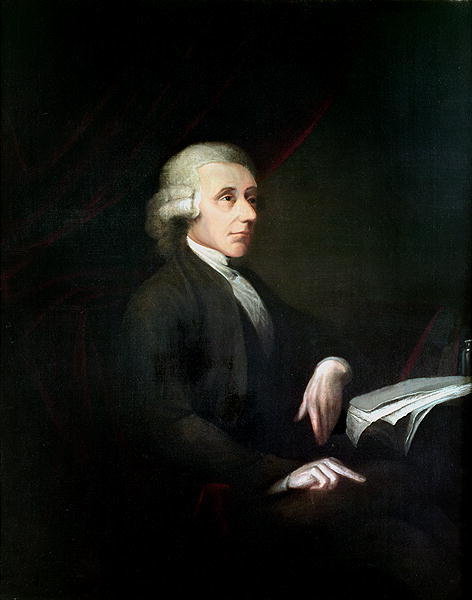
A portrait of Priestley commissioned by his publisher and close friend Joseph Johnson from Henry Fuseli (c. 1783)
an English chemist, natural philosopher, separatist theologian, grammarian, multi-subject educator, and liberal political theorist. He published over 150 works, and conducted experiments in electricity and other areas of science. He was a close friend of, and worked in close association with Benjamin Franklin involving electricity experiments
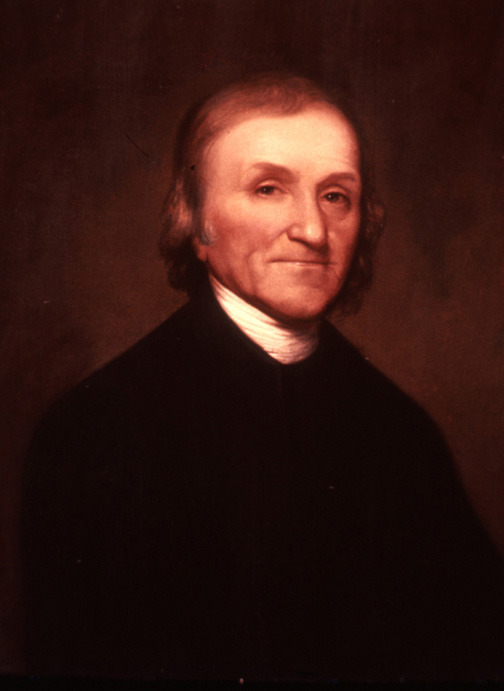
Priestley, painted late in life by Rembrandt Peale(c. 1800); Americans knew Priestley less as a man of science and more as a defender of the freedom of the colonies and of Dissenters.
Priestley is credited with his independent discovery of oxygen by the thermal decomposition of mercuric oxide, having isolated it in 1774. During his lifetime, Priestley's considerable scientific reputation rested on his invention of carbonated water, his writings on electricity, and his discovery of several "airs" (gases), the most famous being what Priestley dubbed "dephlogisticated air" (oxygen). Priestley's determination to defend phlogiston theory and to reject what would become the chemical revolution eventually left him isolated within the scientific community.
Priestley's science was integral to his theology, and he consistently tried to fuse Enlightenment rationalism with Christian theism. In his metaphysical texts, Priestley attempted to combine theism, materialism, and determinism, a project that has been called "audacious and original". He believed that a proper understanding of the natural world would promote human progress and eventually bring about the Christian millennium. Priestley, who strongly believed in the free and open exchange of ideas, advocated toleration and equal rights for religious Dissenters, which also led him to help found Unitarianism in England. The controversial nature of Priestley's publications, combined with his outspoken support of the American Revolution and later the French Revolution, aroused public and governmental contempt; eventually forcing him to flee in 1791, first to London and then to the United States, after a mob burned down his Birmingham home and church. He spent his last ten years in Northumberland County, Pennsylvania.
A scholar and teacher throughout his life, Priestley made significant contributions to pedagogy, including the publication of a seminal work on English grammar and books on history; he prepared some of the most influential early timelines. The educational writings were among Priestley's most popular works. Arguably his metaphysical works, however, had the most lasting influence, as now considered primary sources for utilitarianism by philosophers such as Jeremy Bentham, John Stuart Mill, and Herbert Spencer.

Priestley by Ellen Sharples
The intellectually stimulating atmosphere of Warrington, often called the "Athens of the North" (of England) during the 18th century, encouraged Priestley's growing interest in natural philosophy. He gave lectures on anatomy and performed experiments regarding temperature with another tutor at Warrington, his friend John Seddon. Despite Priestley's busy teaching schedule, he decided to write a history of electricity. Friends introduced him to the major experimenters in the field in Britain—John Canton, William Watson, Timothy Lane, and the visiting Benjamin Franklin who encouraged Priestley to perform the experiments he wanted to include in his history. Priestly also consulted with Franklin during the latter's kite experiments. In the process of replicating others' experiments, Priestley became intrigued by unanswered questions and was prompted to undertake experiments of his own design. (Impressed with his Charts and the manuscript of his history of electricity, Canton, Franklin, Watson, and Richard Price nominated Priestley for a fellowship in the Royal Society; he was accepted in 1766.)
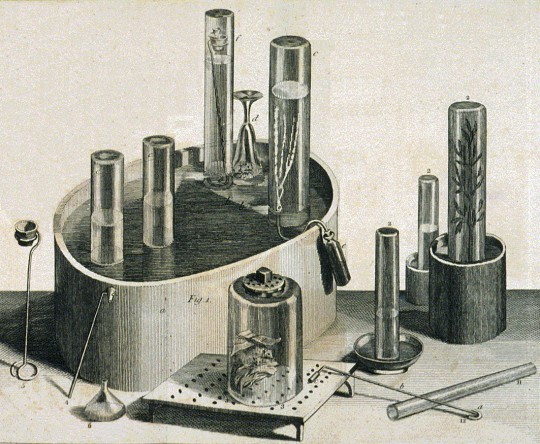
Equipment used by Priestley in his experiments on gases
Priestley's years in Calne were the only ones in his life dominated by scientific investigations; they were also the most scientifically fruitful. His experiments were almost entirely confined to "airs", and out of this work emerged his most important scientific texts: the six volumes of Experiments and Observations on Different Kinds of Air (1774–86). These experiments helped repudiate the last vestiges of the theory of four elements, which Priestley attempted to replace with his own variation of phlogiston theory. According to that 18th-century theory, the combustion or oxidation of a substance corresponded to the release of a material substance, phlogiston.
Priestley's work on "airs" is not easily classified. As historian of science Simon Schaffer writes, it "has been seen as a branch of physics, or chemistry, or natural philosophy, or some highly idiosyncratic version of Priestley's own invention". Furthermore, the volumes were both a scientific and a political enterprise for Priestley, in which he argues that science could destroy "undue and usurped authority" and that government has "reason to tremble even at an air pump or an electrical machine".
Volume I of Experiments and Observations on Different Kinds of Air outlined several discoveries: "nitrous air" (nitric oxide, NO); "vapor of spirit of salt", later called "acid air" or "marine acid air" (anhydrous hydrochloric acid, HCl); "alkaline air" (ammonia, NH3); "diminished" or "dephlogisticated nitrous air" (nitrous oxide, N2O); and, most famously, "dephlogisticated air" (oxygen, O2) as well as experimental findings that showed plants revitalised enclosed volumes of air, a discovery that would eventually lead to the discovery of photosynthesis. Priestley also developed a "nitrous air test" to determine the "goodness of air". Using a pneumatic trough, he would mix nitrous air with a test sample, over water or mercury, and measure the decrease in volume—the principle of eudiometry. After a small history of the study of airs, he explained his own experiments in an open and sincere style. As an early biographer writes, "whatever he knows or thinks he tells: doubts, perplexities, blunders are set down with the most refreshing candour." Priestley also described his cheap and easy-to-assemble experimental apparatus; his colleagues therefore believed that they could easily reproduce his experiments. Faced with inconsistent experimental results, Priestley employed phlogiston theory. This led him to conclude that there were only three types of "air": "fixed", "alkaline", and "acid". Priestley dismissed the burgeoning chemistry of his day. Instead, he focused on gases and "changes in their sensible properties", as had natural philosophers before him. He isolated carbon monoxide (CO), but apparently did not realise that it was a separate "air".
In August 1774 he isolated an "air" that appeared to be completely new, but he did not have an opportunity to pursue the matter because he was about to tour Europe with Shelburne. While in Paris, Priestley replicated the experiment for others, including French chemist Antoine Lavoisier. After returning to Britain in January 1775, he continued his experiments and discovered "vitriolic acid air" (sulphur dioxide, SO2).
In March he wrote to several people regarding the new "air" that he had discovered in August. One of these letters was read aloud to the Royal Society, and a paper outlining the discovery, titled "An Account of further Discoveries in Air", was published in the Society's journal Philosophical Transactions. Priestley called the new substance "dephlogisticated air", which he made in the famous experiment by focusing the sun's rays on a sample of mercuric oxide. He first tested it on mice, who surprised him by surviving quite a while entrapped with the air, and then on himself, writing that it was "five or six times better than common air for the purpose of respiration, inflammation, and, I believe, every other use of common atmospherical air". He had discovered oxygen gas (O2).
Priestley assembled his oxygen paper and several others into a second volume of Experiments and Observations on Air, published in 1776. He did not emphasise his discovery of "dephlogisticated air" (leaving it to Part III of the volume) but instead argued in the preface how important such discoveries were to rational religion. His paper narrated the discovery chronologically, relating the long delays between experiments and his initial puzzlements; thus, it is difficult to determine when exactly Priestley "discovered" oxygen. Such dating is significant as both Lavoisier and Swedish pharmacist Carl Wilhelm Scheele have strong claims to the discovery of oxygen as well, Scheele having been the first to isolate the gas (although he published after Priestley) and Lavoisier having been the first to describe it as purified "air itself entire without alteration" (that is, the first to explain oxygen without phlogiston theory).
In his paper "Observations on Respiration and the Use of the Blood", Priestley was the first to suggest a connection between blood and air, although he did so using phlogiston theory. In typical Priestley fashion, he prefaced the paper with a history of the study of respiration. A year later, clearly influenced by Priestley, Lavoisier was also discussing respiration at the Académie des sciences. Lavoisier's work began the long train of discovery that produced papers on oxygen respiration and culminated in the overthrow of phlogiston theory and the establishment of modern chemistry.
Around 1779 Priestley and Shelburne – soon to be the 1st Marquess of Landsdowne – had a rupture, the precise reasons for which remain unclear. Shelburne blamed Priestley's health, while Priestley claimed Shelburne had no further use for him. Some contemporaries speculated that Priestley's outspokenness had hurt Shelburne's political career. Schofield argues that the most likely reason was Shelburne's recent marriage to Louisa Fitzpatrick—apparently, she did not like the Priestleys. Although Priestley considered moving to America, he eventually accepted BirminghamNew Meeting's offer to be their minister.
Both Priestley and Shelburne's families upheld their Unitarian faith for generations. In December 2013, it was reported that Sir Christopher Bullock– a direct descendant of Shelburne's brother, Thomas Fitzmaurice (MP) – had married his wife, Lady Bullock, née Barbara May Lupton, at London's Unitarian Essex Church in 1917. Barbara Lupton was the second cousin of Olive Middleton, née Lupton, the great-grandmother of Catherine, Duchess of Cambridge. In 1914, Olive and Noel Middleton had married at Leeds' Mill Hill Chapel, which Priestley, as its minister, had once guided towards Unitarianism.
Many of the friends that Priestley made in Birmingham were members of the Lunar Society, a group of manufacturers, inventors, and natural philosophers who assembled monthly to discuss their work. The core of the group included men such as the manufacturer Matthew Boulton, the chemist and geologist James Keir, the inventor and engineer James Watt, and the botanist, chemist, and geologist William Withering. Priestley was asked to join this unique society and contributed much to the work of its members. As a result of this stimulating intellectual environment, he published several important scientific papers, including "Experiments relating to Phlogiston, and the seeming Conversion of Water into Air" (1783). The first part attempts to refute Lavoisier's challenges to his work on oxygen; the second part describes how steam is "converted" into air. After several variations of the experiment, with different substances as fuel and several different collecting apparatuses (which produced different results), he concluded that air could travel through more substances than previously surmised, a conclusion "contrary to all the known principles of hydrostatics". This discovery, along with his earlier work on what would later be recognised as gaseous diffusion, would eventually lead John Dalton and Thomas Graham to formulate the kinetic theory of gases.
In 1777, Antoine Lavoisier had written Mémoire sur la combustion en général, the first of what proved to be a series of attacks on phlogiston theory; it was against these attacks that Priestley responded in 1783. While Priestley accepted parts of Lavoisier's theory, he was unprepared to assent to the major revolutions Lavoisier proposed: the overthrow of phlogiston, a chemistry based conceptually on elements and compounds, and a new chemical nomenclature. Priestley's original experiments on "dephlogisticated air" (oxygen), combustion, and water provided Lavoisier with the data he needed to construct much of his system; yet Priestley never accepted Lavoisier's new theories and continued to defend phlogiston theory for the rest of his life. Lavoisier's system was based largely on the quantitative concept that mass is neither created nor destroyed in chemical reactions (i.e., the conservation of mass). By contrast, Priestley preferred to observe qualitative changes in heat, color, and particularly volume. His experiments tested "airs" for "their solubility in water, their power of supporting or extinguishing flame, whether they were respirable, how they behaved with acid and alkaline air, and with nitric oxide and inflammable air, and lastly how they were affected by the electric spark."
By 1789, when Lavoisier published his Traité Élémentaire de Chimie and founded the Annales de Chimie, the new chemistry had come into its own. Priestley published several more scientific papers in Birmingham, the majority attempting to refute Lavoisier. Priestley and other Lunar Society members argued that the new French system was too expensive, too difficult to test, and unnecessarily complex. Priestley in particular rejected its "establishment" aura. In the end, Lavoisier's view prevailed: his new chemistry introduced many of the principles on which modern chemistry is founded.
Priestley's refusal to accept Lavoisier's "new chemistry"—such as the conservation of mass—and his determination to adhere to a less satisfactory theory has perplexed many scholars. Schofield explains it thus: "Priestley was never a chemist; in a modern, and even a Lavoisierian, sense, he was never a scientist. He was a natural philosopher, concerned with the economy of nature and obsessed with an idea of unity, in theology and in nature." Historian of science John McEvoy largely agrees, writing that Priestley's view of nature as coextensive with God and thus infinite, which encouraged him to focus on facts over hypotheses and theories, prompted him to reject Lavoisier's system. McEvoy argues that "Priestley's isolated and lonely opposition to the oxygen theory was a measure of his passionate concern for the principles of intellectual freedom, epistemic equality and critical inquiry." Priestley himself claimed in the last volume of Experiments and Observations that his most valuable works were his theological ones because they were "superior [in] dignity and importance".
2 notes
·
View notes
Note
2, 7, and 12 foe your three favorite fictional friendships :)
Thank you! Picking three of my favorites off the top of my head, and going on At Length about them:
My favorite scene of them: Sam & Frodo. Every single scene, all of them, but... even with the increasing beauty of the Mordor scenes, right now I'm going to name their scene at the end of Fellowship. Sam's devotion! Sam's perceptiveness! Frodo's desperate attempt to go sacrifice himself alone overridden by his much more urgent need to pull Sam out of the water (especially understandable given the fact that Frodo's parents drowned). Their little argument of "I couldn't have born being left behind, it would've been the death of me" "It would be the death of you to come with me, Sam, and I could not bear that"--both completely unembarrassed to say what they're feeling. Frodo's relief and laughter once he accepts Sam's service for good!
I think this scene is a really good look at how much, and how well, they each treasure the other, and how that makes the friendship work.
What makes me like their friendship: The Doctor & the Brigadier. I just... I love relationships that serve as constants! Where people keep pinging and circling back to each other, and the friendship is a rock no matter what context it's weathering. I love long-distance/long-term friendships that are not the slightest bit damaged by time apart, and the timey-wimeyness of this one takes that to an extreme.
I also love friendships where both parties are very different in their approaches to life but both so good that they still get along and rely on each other, and friendships where one person is supposed to be Very Cool and the other person is completely indifferent to said Coolness. I love how the Brigadier instantly aligns himself with the Doctor whenever they cross paths, and how the Doctor always lights up when he sees the Brigadier unexpectedly.
It's also... it's like that post about how a ship loves an anchor or a fire loves a hearth. That's the Doctor & Earth, but it's especially the Doctor & the Brigadier.
A word to describe them: Holmes & Watson. I think... "Legendary." Because they themselves have the status of legends or folklore in our cultural consciousness, at this point, and because this friendship in particular is one of THE fictional friendships of all time. It's archetypal. It's iconic. Even if you've never read the stories and know nothing about either of them, you can't help knowing that they go together; within the Canon itself, their friendship is chronicled across forty years and dozens of adventures and is very clearly unbreakable. It's the stuff of legend and a source of legends! And it wouldn't be if it weren't for the warmth and depth and groundedness in the stories themselves, of course... but what we see along with and springing from those qualities is something legendary.
#asks#ask game#ioannemos#thank you!#i took the excuse to Wax Poetic here :P#because i picked things i love a lot#i appreciate the opportunity!
7 notes
·
View notes